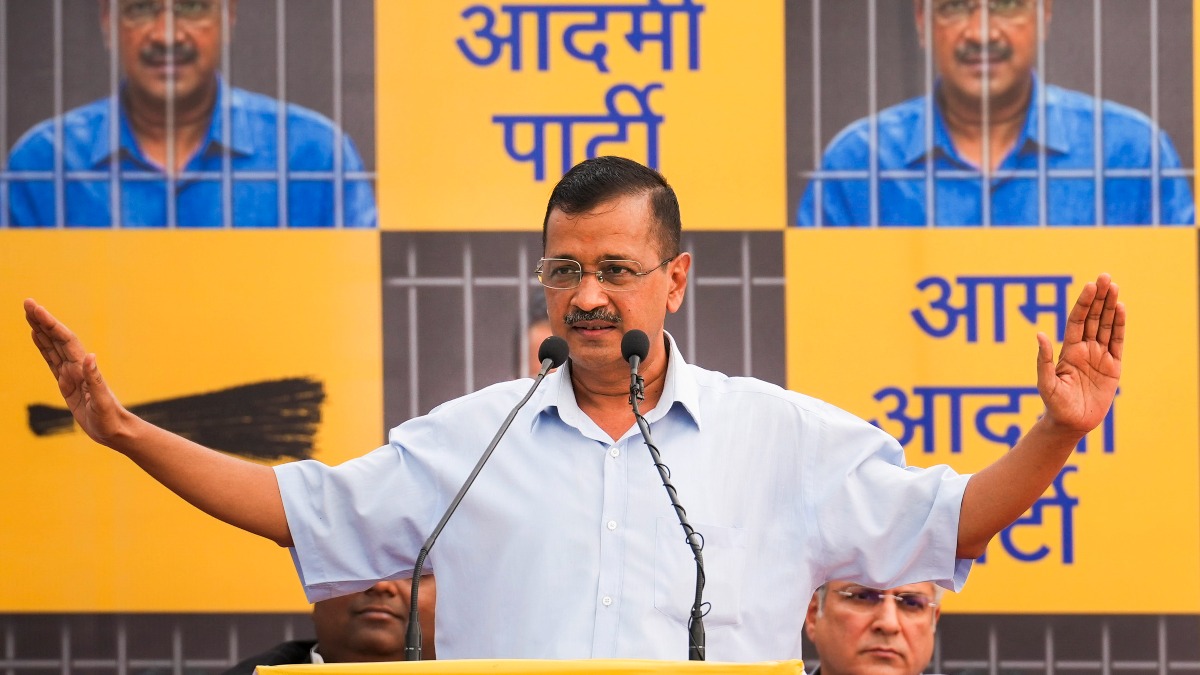In a significant respite amidst the controversial Delhi liquor policy scandal, Chief Minister Arvind Kejriwal has been granted bail by the Rouse Avenue Court. Presiding over the summer recess, Justice Vindu announced the release of Kejriwal on bail, secured by a bond of 100,000 rupees.
While the Enforcement Directorate (ED) requested a 48-hour stay on the order’s enforcement, the court rejected the demand, stating that a detailed judgment would be uploaded on Friday. Meanwhile, the ED prepares to challenge the Rouse Avenue Court's decision in the High Court.
The Delhi Rouse Avenue Court heard Kejriwal's bail plea on Thursday before granting bail in the evening, marking a major relief for the CM in the liquor scam. Prior to the decision, both parties presented their arguments.
What were the arguments presented by the ED's lawyer?
Representing the ED, Additional Solicitor General (ASG) S.V. Raju presented documentary evidence, including a 100,000 rupee payment to a hotel in Goa on behalf of Arvind Kejriwal – a transaction separate from other payments, executed by Chanpreet Singh, who was allegedly linked to a 450 million rupee transfer for use in the Goa elections through hawala channels. ASG Raju highlighted the connection to Sagar, who received funds in Delhi from Vinod Chauhan, hinting at a web of transactions where money wasn't always handed over directly, but through intermediaries. Chauhan's phone revealed notes with a striking similarity to Singh's, evidencing their communication.
'CM Kejriwal communicated frequently with Vinod Chauhan'
Chauhan’s known conversations with Kejriwal, along with their substantial relationship, raised questions about the CM's dealings with a facilitator who handled cash transactions. Coupled with the fact that Chauhan directed Sagar Patel to make payments to Chanpreet, who subsequently covered Kejriwal's hotel expenses, the layers of implication seemed to thicken.
The ASG voiced concern over Kejriwal's denial to provide the password for his phone, necessitating the use of Chauhan’s device, and insisted that adverse inferences should be drawn from this refusal as it may bring the whole truth to light – a potentially strong basis for denying bail.
ED stated that Kejriwal wasn't arrested despite ignoring summons
Additionally, ASG Raju argued that Kejriwal's non-compliance with summons, which was acknowledged by the court, did not result in immediate arrest out of deference, further bolstering the case against Kejriwal. The discourse advanced to the High Court, where detailed arguments were presented and documents were summoned for examination—the court's denial of interim relief to Kejriwal had been under a thorough review before his eventual arrest.
Defense speaks: CM Kejriwal's lawyer argues
Following the ASG, Kejriwal's lawyer decried the prosecution’s use of 'laughable' evidence - questioning whether a birthday wish could equate to hawala transactions, and pointing out the lack of substantiation for the alleged 450 million rupee donations to AAP. The materials at hand were said to fall into the realms of speculation, bias, and beliefs. An incongruity surfaced over the assertion of only 450 million being scrutinized by ED and CBI, while officials stated the sum amounted to 1 billion rupees, with no clear evidence linking Kejriwal to the hawala operator in question.
The attorney highlighted that the case against Kejriwal was based on statements from individuals who admitted culpability, people who weren't saints but tainted themselves. The varying statements of numerous co-accused were contradictory, the defense noted, suggesting that the investigative process was ongoing and entrapment-prone.
No evidence of a 100 million rupee transaction from South Group: Kejriwal's lawyer
Kejriwal's lawyer emphasized the necessity for circumstances to be connected with a tendency to point towards crime, insisting there was no evidence of the alleged 100 million rupees from the South Group. This group, according to ED and CBI, was a syndicate of politicians and businessmen influencing liquor licensing, for which bribes were purported to reach Delhi’s ruling party. Nevertheless, contradictions in the co-accused's statements weakened the prosecution's position.
CM Kejriwal has no criminal background
The defense, keen on underlining Kejriwal's untarnished criminal history, asserted that the investigative tactics employed were prone to cause indeterminable delays and potentially target individuals unfairly. It was highlighted that the Supreme Court, satisfied that Kejriwal posed no likelihood of evading justice or influencing the investigation or witnesses, had granted him interim bail the previous Wednesday.




